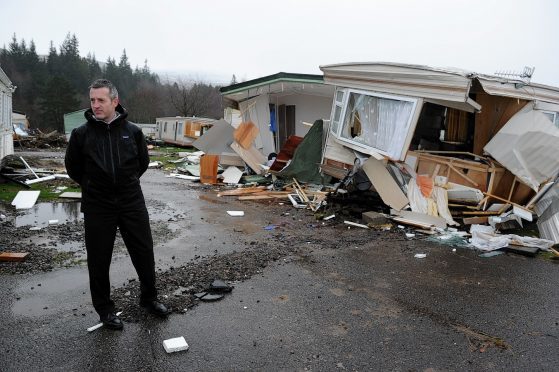Aberdeenshire councillors have backed a multi-million-pound funding package to pay for the clean-up bill after the most devastating floods in a generation.
The total recovery cost for the council could run to more than £7.6million and yesterday the authority’s policy and resources committee authorised £4.2million to pay for repairs.
The deal included endorsing emergency money already spent by council departments in the immediate aftermath of Storm Frank earlier this year.
Councillors released £3million from Aberdeenshire’s winter and other emergencies fund for remedial works to help get the region back on its feet.
The cash will pay for the repair of key infrastructure including roads and bridges which were left badly damaged.
A further £1.2million will bring 22 council homes in Ballater – which were ravaged by the storms – back to an inhabitable condition.
Council co-leader Richard Thomson chaired yesterday’s meeting at Woodhill House and told members: “The council has reserves and contingency funds set aside to deal with emergencies and this is part of our robust financial strategy.
“The response to the flooding has been fantastic and, in a short time, the communities involved are getting back on their feet.”
Mr Thomson, who praised council officers and local communities for their response to the catastrophic weather, said the authority has set up a flood recovery group to prioritise and oversee repair works.
He added: “The estimated list of work so far totals around £7.6 million. Whilst the council will make use of its emergency funds, we’re also very grateful to the Scottish Government for their additional financial support.”
Infrastructure chief Stephen Archer echoed the co-leader’s comments, adding: “I would like to reassure you we are pursuing all funding sources possible to mitigate these costs.”
The authority is also in talks with Holyrood about securing financial support from the UK Government under the Bellwin Scheme.
It is also seeking specific funding from Holyrood, in addition to the £2million handed to the council in January.
The River Dee was the first to burst its banks on December 30, with heavy rainfall leading to the rivers Don, Ury and Ythan also overflowing in the following weeks.
Some 600 homes and 100 businesses were devastated by the floods.
